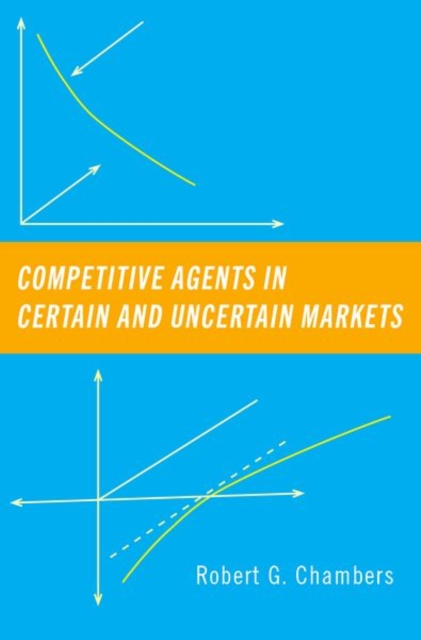CITESTE MAI MULT
Detalii
Descriere RO
For all its elaborate theories and models, economics always reduces to comparisons. Should we build A rather than B? Will I be better off if I eat D rather than C? How much will it cost me to produce F instead of E? At root, the ultimate goal of economics is simple: assessing the alternatives and finding the best possible outcome. This basic mathematical concept underlies all introductions to the field of economics, yet as advanced students progress through the discipline, they often lose track of this foundational idea when presented with real-world complications and uncertainty.
In Competitive Agents in Certain and Uncertain Markets, Robert G. Chambers develops an integrated analytic framework for treating consumer, producer, and market equilibrium analyses as special cases of a generic optimization problem. He builds on lessons learned by all beginning students of economics to show how basic concepts can still be applied even in complex and highly uncertain conditions. Drawing from optimization theory, Chambers demonstrates how the same unified mathematical framework applies to both stochastic and non-stochastic decision settings. The book borrows from both convex and variational analysis and gives special emphasis to differentiability, conjugacy theory, and Fenchel's Duality Theorem. Throughout, Chambers includes practical examples, problems, and exercises to make abstract material accessible.
Bringing together essential theoretical tools for understanding decision-making under uncertainty, Competitive Agents in Certain and Uncertain Markets provides a unified framework for analyzing a broad range of microeconomic decisions. This book will be an invaluable resource for advanced graduate students and scholars of microeconomic theory.
EdituraOxford University Press Inc
Dimensiuni150 x 236 x 33
Data Publicarii07/09/2021
Format
Cartonata
Numar pagini392
Aceasta este o carte in limba engleza. Descrierea cartii (tradusa din engleza cu Google Translate) este in limba romana din motive legale.

